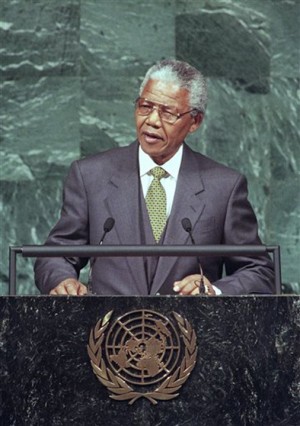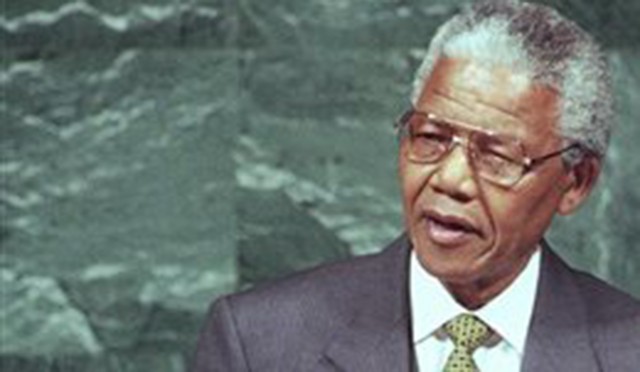
Associated Press
JOHANNESBURG — Nelson Mandela was a master of forgiveness.
South Africa’s first black president spent nearly a third of his life as a prisoner of apartheid, yet he sought to win over its defeated guardians in a relatively peaceful transition of power that inspired the world.
As head of state, the former boxer, lawyer and inmate lunched with the prosecutor who argued successfully for his incarceration.
He sang the apartheid-era Afrikaans anthem at his inauguration and traveled hundreds of miles to have tea with the widow of the prime minister in power at the time he was sent to prison.
It was this generosity of spirit that made Mandela, who died Thursday at the age of 95, a global symbol of sacrifice and reconciliation in a world often jarred by conflict and division.
Mandela’s stature as a fighter against apartheid — the system of white racist rule he called evil — and a seeker of peace with his enemies was on a par with that of other men he admired: American civil rights activist Martin Luther King Jr. and Indian independence leader Mohandas K. Gandhi, both of whom were assassinated while actively engaged in their callings.
Mandela’s death deprived the world of one of one of the great figures of modern history and set the stage for days of mourning and reflection about a colossus of the 20th century who projected astonishing grace, resolve and good humor.
Dressed in black, South African President Jacob Zuma made the announcement on television.
He said Mandela died “peacefully,” surrounded by family, at around 8:50 p.m.
“We’ve lost our greatest son. Our nation has lost its greatest son. Our people have lost a father,” Zuma said. “Although we knew that this day would come, nothing can diminish our sense of a profound and enduring loss.”
He secured near-mythical status in his country and beyond. Last year, the South African central bank released new bank notes showing his face, a robust, smiling image of a man who was meticulous about his appearance and routinely exercised while in prison.
South Africa erected statues of him and named buildings and other places after him.
He shared the 1993 Nobel Peace Prize with F.W. de Klerk, the country’s last white president. He was the subject of books, films and songs and a magnet for celebrities.



